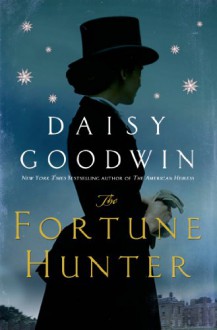
This story is woven around 3 characters, Charlotte Baird, an heiress and orphan aspiring to be a renowned photographer, Elizabeth, the Empress of Austria and Queen of Hungary, and George “Bay” Middleton an accomplished rider. They are very real historic characters, but the story knitted around them is historic fiction.
Middleton was an excellent horseman in the service of the Queen. He was in charge of the horses for Earl Spencer, to whom he was indebted. Because he was neither titled nor rich, he was looked down upon and often ridiculed by those in the aristocracy, even as he socialized with them on occasion. He was dependent on the support of Earl Spencer, his sponsor, and was obliged to perform favors when asked.
The Empress was married to Emperor Franz Josef when she was very young. Although to the world it would seem like she had everything anyone could want, she was lonely and dissatisfied with her life and lack of privacy. She was rather haughty and extremely vain about her looks. She was royalty and expected to be treated as such. Her husband was preoccupied with the affairs of state, the very purpose for which he was raised, and she often felt neglected. On a visit to England to the estate of Earl Spencer, where she intended to participate in a legendary hunt, the Earl assigned her a pilot to ride along with her to insure her safety. Although she was quite an accomplished horsewoman, she was unfamiliar with the terrain. At first, both objected, but Bay Middleton was not in a position to refuse the request, and although the Empress had her own attendants, after meeting Bay Middleton, she soon grew fond of him and preferred his company.
Charlotte loved photography more than ball gowns which in an English lady of good breeding was an anomaly of the times. Bay found her fascinating; he insisted it was not because she was an heiress who would inherit a large fortune when she was 25 and could marry a man of her choice when she was 21. At the time, her brother was her overseer since she was only 20. Bay even proposed to Charlotte, offering to run away with her, but she turned him down, wanting to wait until she was of age. Before the Empress had even stepped foot in England, Elizabeth and Bay seemed smitten with each other.
Bay Middleton was known as a lady’s man, but he had taken such an interest in Charlotte Baird because she was feisty and a woman of independent thought. In stodgy England, where they were very class conscious, where public decorum must always be observed and manners must be impeccable, it was very unusual for a woman to be so outspoken. Soon, however, the larger than life personality of the Empress (in reality she was delicate and small), turned his head and mixed signals between all three of the characters caused a rift in the relationships. Bay was quite overcome by the beauty and position of the Empress. In addition, she did expect to be obeyed by all, including him. Yet, his love for Charlotte remained and would not die even as he transgressed with Elizabeth, and he still wished to marry her.
The love triangle is the basis of this “fairy tale” created by Goodwin. These very real historic figures were constantly surrounded by jealous suitors and sycophants who fawned over each of them at different times in the narrative and exemplified the class differences and arrogance that existed at that time. It was not easy to cross the line from the commoner into the world of the aristocracy. However, one misstep would cause the aristocracy to shun the aristocratic member who erred, and Charlotte was in real danger of misstepping as was the Empress herself! She had to be even more discreet.
I think of the book as a light and airy, pleasant read, it was interesting and not too taxing. The history in the novel was meager without rich detail, but there was enough to keep the reader interested and to inspire further research into the characters. The best part was the sardonic and sarcastic banter between the characters. Their dialogue seemed so authentic that the conversations often made me smile and at other times made me angry. The pomposity of some of the aristocracy was abominable, but the repartees made the uniqueness of the Victorian age, apparent. This book is simply a very good read. The pages will turn themselves. Actually, I listened to the audio and really enjoyed it. It was the theater of the mind as the reader assumed the personality and mood of each character with the proper tone and modulation.
I think it would be better to listen to this book than read the print version because the characters all seem to have distinctive personalities which the reader’s voice portrayed accurately. The formality of the English is presented clearly with the class differences and condescending behavior very apparent and so, too, was the stark contrast between the realms of England, with Queen Victoria, and Austria, with the Empress Elizabeth.


 Log in with Facebook
Log in with Facebook 






